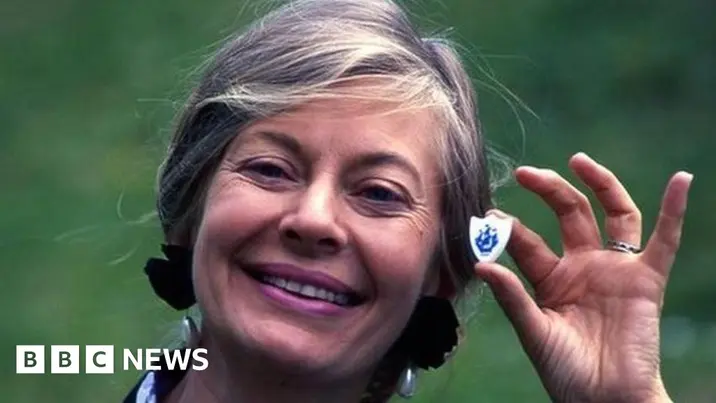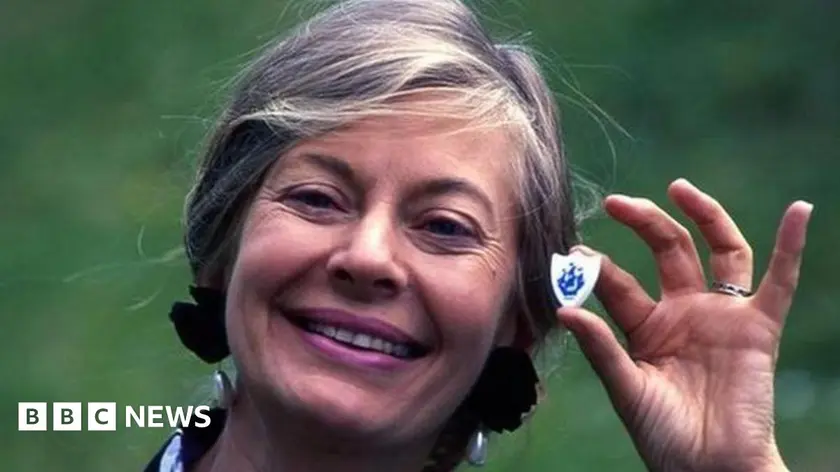T4K3.news
Blue Peter icon Baxter remembered for lasting impact
Biddy Baxter helped shape Blue Peter into a national institution and left a legacy that endures in the show’s archive and brand.
A look at how Biddy Baxter helped build Blue Peter into a national staple and what her leadership meant for the programme and its archives.
Biddy Baxter and the lasting imprint of Blue Peter
Biddy Baxter, who died at 92, steered Blue Peter for 26 years, turning a modest children’s show into a national institution. She introduced an alphabetical card index to track viewer correspondence, created the Blue Peter badge, and popularised the makes segment that turned everyday scraps into art. The show also built its signature rhythm around pets, overseas filming, and a steady stream of audience engagement.
Her approach was precise and often described as exacting. Some colleagues remember a forceful editor who defended the show against what she saw as performative criticism. She rejected claims that two Petras were replaced for personal reasons, saying hosts left for performance and audience reasons. She also fought to archive every episode from the mid 1960s, a decision that ensured the series could be studied and remembered long after broadcast.
Her career also reflects wider shifts in British broadcasting. When she joined the BBC in 1955, women had limited paths to senior roles, and her rise shows how TV became a platform for new kinds of leadership. After stepping down in 1988, she remained a respected adviser while the program faced changing tastes and new technology. Her imprint endures in a franchise that has moved to a niche channel but still carries the hallmarks she helped establish.
Key Takeaways
"Here's one I made earlier"
Catchphrase that defined the show's practical approach to production
"And now for something completely different"
A line that captured the show's quick shifts in topic
"keeper of the flame"
Describes Baxter's role in preserving the show's legacy
This obituary frames Baxter as both the architect and guardian of Blue Peter, highlighting how one person could mold a long running brand while also inviting questions about power in a public broadcaster. It notes her insistence on preserving episodes, a choice that links memory to cultural value and raises questions about who gets credit for a show’s longevity.
The piece also invites reflection on gender dynamics in media history. Baxter rose through a system that often limited women to lower ranks, demonstrating how leadership can redefine a program and a culture. As technology reshaped youth programming, her focus on archives and audience connection offered a model for how heritage can accompany innovation rather than impede it. The result is a nuanced portrait of a complex legacy that still informs public broadcasting today.
Highlights
- Here’s one I made earlier
- And now for something completely different
- Memory is built one episode at a time
Editorial risk around sensitive legacy and leadership dynamics
The obituary touches on power dynamics, including disputes over host firings and gender representation at the BBC. The piece could provoke debate about leadership styles in public broadcasting and the tension between nostalgia and accountability.
Memory and media rarely stay still, and Baxter's work keeps challenging future producers to balance imagination with responsibility.
Enjoyed this? Let your friends know!
Related News

Blue Peter editor Baxter dies

Blue Peter editor Biddy Baxter obituary

Biddy Baxter obituary
Documentary Investigates Iconic Vietnam Photo Controversy

Hulk Hogan passes away after medical emergency

Terry Reid dies at 75 after cancer battle

MLB trade deadline sees significant movements
Clueless marks 30 years as an iconic teen film
